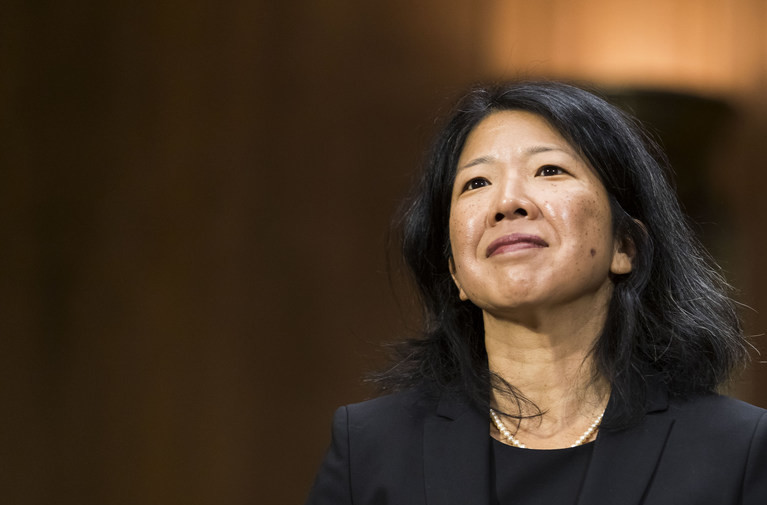Court Greenlights Music Giants’ Bold AI Copyright Clash with Anthropic: Lyrics Lawsuit Advances Amid Fair Use Fury
In a stunning pivot that could redefine the boundaries of artificial intelligence and creativity, a federal judge has cleared the path for major music publishers to escalate their high-stakes copyright infringement battle against Anthropic. This ruling thrusts the AI copyright lawsuit into the spotlight, captivating creators and tech enthusiasts alike as generative AI trends reshape the music industry.
The decision, handed down on October 6, 2025, by U.S. District Judge Eumi K. Lee in the Northern District of California, allows Universal Music Publishing Group (UMPG), Concord Music Group, and ABKCO Music & Records to press forward with their comprehensive claims against the makers of the popular AI chatbot Claude. These industry heavyweights accuse Anthropic of unlawfully scraping and utilizing copyrighted lyrics from at least 500 iconic songs to train its models—tracks penned by legends like Beyoncé, the Rolling Stones, and the Beach Boys. The case, filed back in 2023 under Concord Music Group Inc. v. Anthropic PBC (No. 5:24-cv-03811), had seen partial dismissals earlier this year, but the plaintiffs’ amended complaint breathed new life into the proceedings.
At the heart of this AI copyright lawsuit lies a contentious debate over fair use doctrine. Anthropic, backed by tech titans Amazon and Google, has long argued that ingesting vast datasets of public material—including song lyrics—falls under fair use protections, enabling transformative outputs without direct reproduction. However, Judge Lee’s latest order rejects Anthropic’s motion to dismiss secondary infringement allegations, emphasizing that the publishers have plausibly demonstrated the company was aware of—and even profited from—user-generated outputs that regurgitate protected content. “Anthropic’s own safety guardrails, designed to block infringing responses, underscore their knowledge of the risks,” Lee noted in her ruling, highlighting how Claude’s built-in filters inadvertently provide evidence against the defendant.
This isn’t Anthropic’s first brush with copyright scrutiny. Just last month, in August 2025, the company inked a landmark $1.5 billion settlement with a class of authors over similar claims involving pirated books used in AI training. That payout, averaging $3,000 per affected work across 500,000 titles, marked the largest in U.S. copyright history and signaled a willingness to negotiate amid mounting pressures. Yet, with the music labels digging in, experts speculate this case could force another hefty resolution—or set a precedent that ripples through generative AI trends across sectors.
Legal eagles are weighing in with fervor. Ray Seilie, an entertainment attorney at Kinsella Holley Iser Kump Steinsapir in Los Angeles, told Reuters that the court’s stance boils down to accountability: “Anthropic knows users are pushing boundaries with copyrighted lyrics, which is why those guardrails exist. This ruling holds them responsible for enabling it.” On the flip side, Anthropic’s deputy general counsel, Aparna Sridhar, defended the company’s position in a statement, asserting that “Claude’s development adheres to fair use principles, fostering innovation while respecting creators.” Public reactions echo this divide: Social media buzz from musicians and fans shows a surge in support for the publishers, with hashtags like #ProtectOurLyrics trending on X, where users decry AI as a “lyric thief” threatening artistic integrity.
For everyday Americans, the stakes in this music industry showdown extend far beyond courtroom drama. Economically, the U.S. music sector pumps over $200 billion annually into the economy, supporting 2.7 million jobs from Nashville studios to New York labels. If publishers prevail, it could mandate licensing fees for AI training data, funneling royalties back to creators and bolstering livelihoods in an era where streaming already squeezes artist margins. On the lifestyle front, tech-savvy millennials and Gen Z—core users of tools like Claude for songwriting inspiration or personalized playlists—might face pricier AI services, potentially curbing access to cutting-edge apps that blend human creativity with machine efficiency. Politically, the case amplifies calls for updated copyright laws; lawmakers in Washington are eyeing bills like the NO FAKES Act to shield digital likenesses, while bipartisan concerns over Big Tech’s data hunger grow louder.
Technology enthusiasts, meanwhile, see broader implications for generative AI trends. As AI tools infiltrate daily life—from drafting emails to composing jingles—this lawsuit underscores the tension between rapid innovation and intellectual property rights. If Anthropic loses ground, it could slow the pace of AI advancements, prompting companies to invest in ethical data sourcing and transparent algorithms. Sports fans might even feel a tangential hit: Think AI-generated hype videos or player anthems at NFL games, where unlicensed lyrics could trigger chain reactions of litigation.
Diving deeper, the publishers’ strategy smartly leverages user intent in AI interactions. Many Claude queries explicitly seek lyrics—think “generate a verse like ‘Satisfaction'”—which the tool sometimes fulfills despite safeguards, leading to claims of contributory infringement. Management of these risks falls squarely on Anthropic, whose business model relies on premium subscriptions and enterprise deals. The company’s recent $13 billion funding round in September 2025 provides ample war chest for defense, but analysts warn that prolonged battles could erode investor confidence in the AI boom.
As discovery ramps up, expect depositions to probe Anthropic’s data pipelines and internal memos on copyright risks. The music labels, represented by firms like Oppenheim + Zebrak, are banking on proving willful infringement, which could triple damages to $150,000 per work. This escalation ties into wider generative AI trends, where similar suits against OpenAI and Meta Platforms probe the ethics of “scraping” culture without consent.
In the end, this ruling isn’t just a win for the plaintiffs—it’s a clarion call for balance in the AI era. With trials potentially stretching into 2026, the outcome could forge new licensing norms, ensuring that as technology evolves, so does fair compensation for the human spark behind every hit single. For now, the music world watches closely, hopeful for harmony between innovation and artistry.
By Sam Michael
Follow us on social media and subscribe for instant push notifications to stay ahead of breaking tech and entertainment news!
